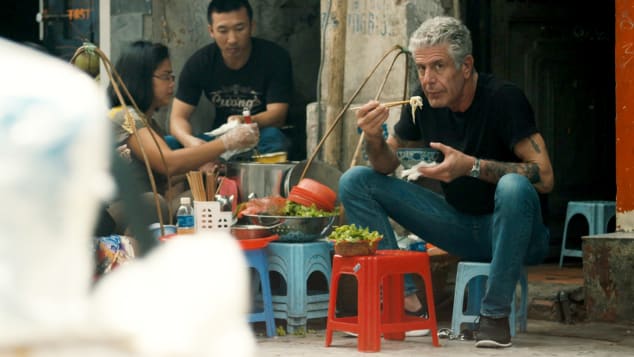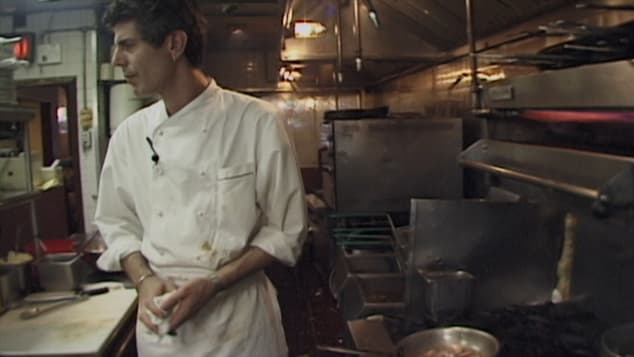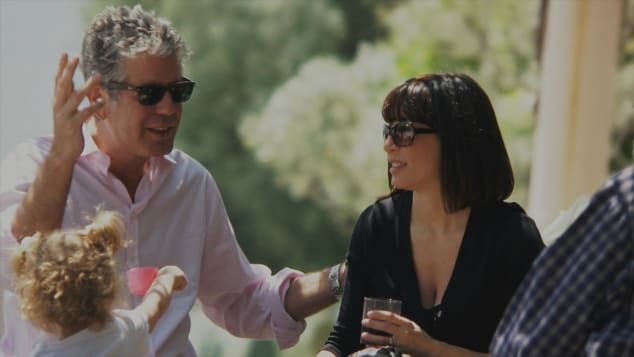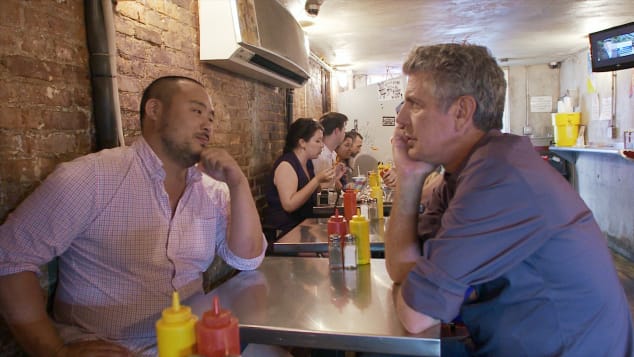Feelings about Anthony Bourdain are no less raw, nearly four years after his shocking death.
Director Morgan Neville’s poignant documentary chronicles Bourdain’s trajectory from New York chef to celebrated author to beloved globe-trotting TV personality, and tries to shed some light on the mystery of his 2018 suicide at age 61.
“I feel like his death was such an unexpected thing to the public, that there’s just like this cultural rip in the paper for people,” Neville said.
“Roadrunner: A Film About Anthony Bourdain,” from HBO Max and CNN Films and released by Focus Features, examines the brash culinary traveler’s passions and inner struggles and combs through his final months with deeply personal recollections from Bourdain’s friends and family.
So that was all stuff I liked about him, but I also … I just had questions about him, like I think a lot of people did. And certainly in the wake of his suicide, I think the reaction I’ve gotten more than any is how the hell does that happen?

The first surprises were that he was a shy, nerdy guy who just read books incessantly and worked in the kitchen on his feet 12 hours a day, six days a week for 20 years.
You know, like that’s who he was before. … The “Kitchen Confidential” version of his early life is great and it’s funny and it’s romanticized, but I don’t think you quite understand his shyness and his kind of geekiness, his gangliness too, just his physicality and all of that early on.
And so that was part of it, and then just starting to see once the world opened up to him and he could travel all the time, how these things that he had always wanted became the kind of new defining principles of his life. … He had been a heroin addict, he had written about that and that the rigors of the kitchen had kept him on the straight and narrow …

And he says in the film, “Inside here, I’m safe in the kitchen, but outside that door, that’s what scares me.” And that when he left the kitchen behind, he was aware of the fact that he was suddenly wading out into dark waters and he didn’t know what was going to be there. … So he was very aware of the fact that he was becoming unmoored from the things that had really anchored him for a long time.
And parts of those things he found on the way were really energizing and exciting but part of it is I felt like he never really found a new mooring that stuck. I mean, he got married, he had a child, he had these moments of kind of, oh, I can live this kind of life and I can kind of be this kind of responsible person and I can get really into all these new things … whether it’s jujitsu or writing. But … there was a restlessness that I think he really kind of unleashed that he could never turn off.
And again, travel is amazing, you know, travel is great, and so many of the things he espoused were amazing. But traveling 250, 270 days a year — at a certain point, it’s not traveling, it’s running away and I think that’s something that he never really came to terms with. I mean, I know he thought about it … He negotiated a book contract to go take a one-year sabbatical and take his family and live in Vietnam and write a book about it.
He had these kind of escape plans or modifications he could have made in his life. And he never made any of them. He never did one less episode a year. And that’s the thing that I think most people would’ve, most people would have said, “Oh, my life-work balance is out of whack, maybe I should work less.”
But for Tony, I think it was both the sense of maybe it’ll go away if I … don’t hang on to it so much, and that there’s something about the addiction to travel and to experience that became its own kind of self-fulfilling obsession.
But what changed is, as I started to do the interviews and started to spend more and more time with the people in Tony’s life who were dealing with the grief in the wake of the suicide, I realize like there’s a part of Tony’s life that he was kind of blind to and it’s that — it’s both the amount of love people had for him, but also the amount of pain he caused.
And I felt like that was something I owed to the people I interviewed. And that at a certain point, there’s part of the story that Tony shouldn’t like. And that that became to me the way the film evolved in my mind. That it’s both things, but I definitely started to feel much more like I really wanted to honor the kind of honesty and vulnerability that people who talked to me gave me because I know it was not easy for anybody.








+ There are no comments
Add yours